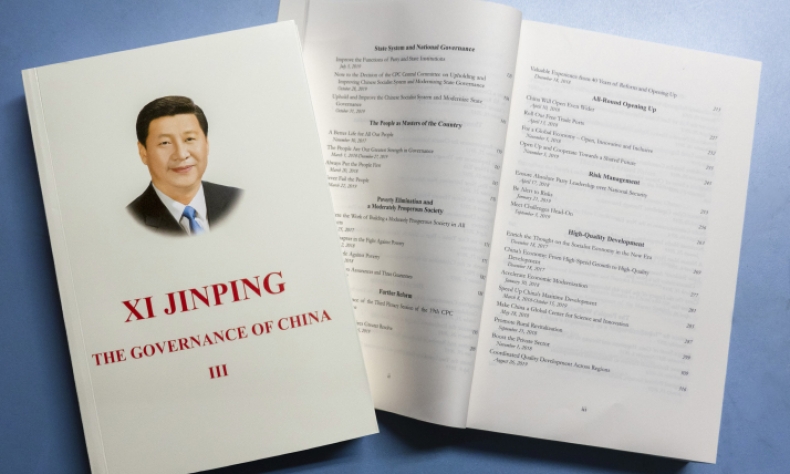
Targeted and Practical Policies, Outlined in Xi’s Book, Remain Relevant Even in Turbulent Times
This is what makes the book special: its honesty and applicability in day-to-day domestic and international politics, even under extreme circumstances.
One of the most challenging tasks for Western scholars is understanding China. The differences in their cultures overshadow the interpretation of China in Western discourse. As a result, China is regularly portrayed according to Western expectations or standards.
China’s progress in the last decades has been the result of hard work, systematic action and careful planning. Xi Jinping: The Governance of China Volume III offers a valuable account of Chinese political thinking and the priorities in the governance of the country structured around 19 thematic units.
China finds itself at a crossroads due to the volatile international environment. President Xi Jinping is leading the country during a period of unprecedented challenges, which had been apparent even before the outbreak of the novel coronavirus disease (COVID-19). As he says, “One should be mindful of possible danger in times of peace, downfall in times of survival, and chaos in times of stability.”
China created a miracle in the past and now it needs to patiently sustain it. What deserves attention, particularly from the Western perspective, is that this miracle was created with a different governance model. Xi’s book explains this model, socialism with Chinese characteristics, and how it is being played out in the political, economic, cultural, societal and international spheres.
In the final count, what matters is leadership. A leader should solve problems instead of hiding them. Xi acknowledges the reality. He says, “We must be clear: There are still many inadequacies in our work.”
Some difficulties, for example, have been caused by “unbalanced and inadequate development.” Xi is well aware that meeting the fundamental interests of the people is the ultimate yardstick for judging the work of the Communist Party of China.
It is rare for a leader to talk about problems instead of glossing over the situation. But that’s what Xi does. In the book, for instance, he refers to weaknesses in China’s scientific and technological development. Although data from the U.S. National Science Foundation recently showed that China surpassed the U.S. in the number of science and engineering articles published in peer-reviewed journals in 2018 and the publication growth was double the world average, Xi pushes for improvements.
He argues that some enterprises did not pay attention to basic research and sees shortcomings in fields such as machine tools, high-end microchips, basic software, development platforms and basic algorithms. And he employs a similar argument about environmental protection and eco-conservation.
Xi Jinping: The Governance of China Volume III informs about different Chinese policies. More importantly, it sketches out Xi’s determination to succeed in China’s avowed goals.
One of the maxims inscribed in the forecourt of the Temple of Apollo in Delphi, Greece, laying down the foundation of ancient Greek philosophy, was “Know thyself.” It has echoes in the writing of Chinese philosopher-poet Han Yu, who wrote, “It is most pitiful that one does not know one’s mistakes, and those who know but do not change have no courage.”
Xi learns lessons from history and charts policies for the future accordingly. The policies are not general or theoretical but practical and targeted. This explains China’s progress even in turbulent times.
By October, a few months after the publication of Xi Jinping: The Governance of China Volume III, China has controlled the novel coronavirus disease at home, and pledged to have carbon dioxide emissions peak before 2030 and achieve carbon neutrality before 2060.
Xi reiterates early Ming Dynasty poet Lin Hong’s words that “there is no use in reading 10,000 books if we cannot even put one of their words into practice.”
This is what makes the book special: its honesty and applicability in day-to-day domestic and international politics, even under extreme circumstances.
The author is director of the EU-China Program at the Centre International de Formation Européenne.
 Facebook
Facebook
 Twitter
Twitter
 Linkedin
Linkedin
 Google +
Google +










